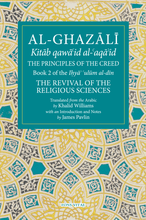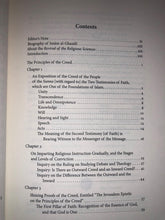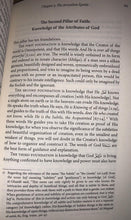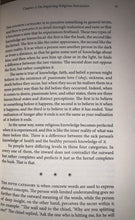
Al-Ghazali: The Principles of the Creed
Kitab Qawaid al-Aqaid Book 2 of Ihya 'Uloom al-Din (Revival of Religious Sciences)
By Imam Al-Ghazali
Translated From The Arabic By Khalid Williams
With An Introduction And Notes By James Pavlin
Paperback 136 Pages
ISBN: 9781641610169
Publisher: Fons Vitae
About The Book
In the Principles of the Creed, (Kitab qawaid al-aqaid) second of the forty books of the Revival of the Religious Sciences(Ihya’ ulum al-din), Abu Hamid al-Ghazali explains the fundamental beliefs of Islam, those that concern faith in God, His revelation, His messengers, and the hereafter.
The scope of these beliefs includes the nature of God, Muhammad’s status as a prophet, the virtues of the Companions, the events related to the resurrection and judgment, and the nature of faith itself.
This presentation of beliefs goes beyond a list of creedal statements; al-Ghazali cites the scriptural foundations in the Quran and hadith, refers to transmitted reports from the Companions and others from the righteous predecessors, and supports these beliefs with rational arguments.
About Imam Ghazali
Abu Hamid Muhammad, famous in the world of learning as al-Ghazzal was born in 450 AH (1058 A.D). in Persia. He graduated from the Nizamia Madressa at Nishapur, with distinction.a very famous educational institution in Nishapur. Later he was appointed as a teacher at the Nizamia College in Baghdad, where he proved very successful in imparting knowledge to the scholars under his care. This valuable gift of sustaining the interest of his pupils and passing on his knowledge to them made him so famous that students from all parts of the country flocked to study under him.
Imam al-Ghazzali was fondly referred to as the "Hujjat-ul-Islam", Proof of Islam, He is honored as a scholar and a saint by learned men all over the world.
Al-Ghazali is generally acclaimed as the most influential thinker of the Classical period of Islam, in his autobiography The Deliverance from Error, the Imam describes his education and his intellectual crisis, which left him so paralyzed by doubt that he gave up his academic pursuits and worldly interests and became a wandering ascetic. This was a process (period) of mystical transformation. Later, he resumed his teaching duties but again left these. An era of the solitary life, devoted to contemplation and writing then ensued, which led to the authorship of a number of everlasting books (Many of which have been translated into English).
profits go towards supporting the educational & community projects
at the Guidance Hub






